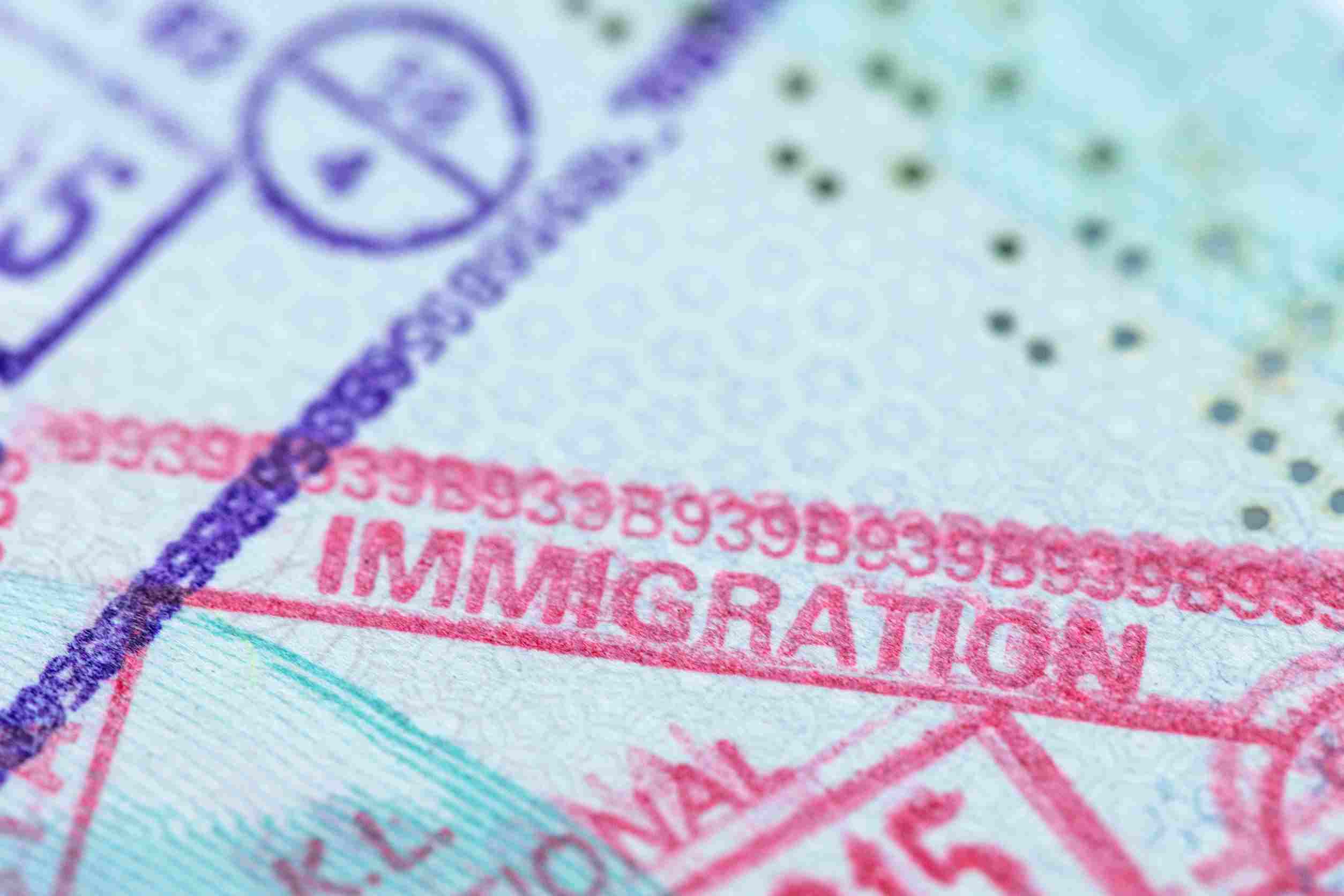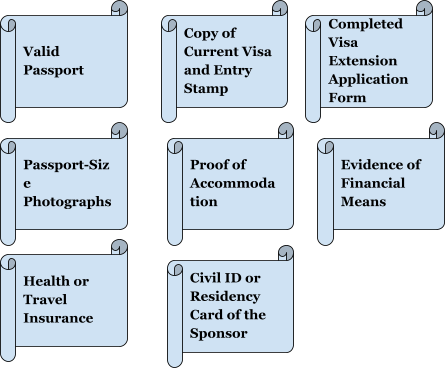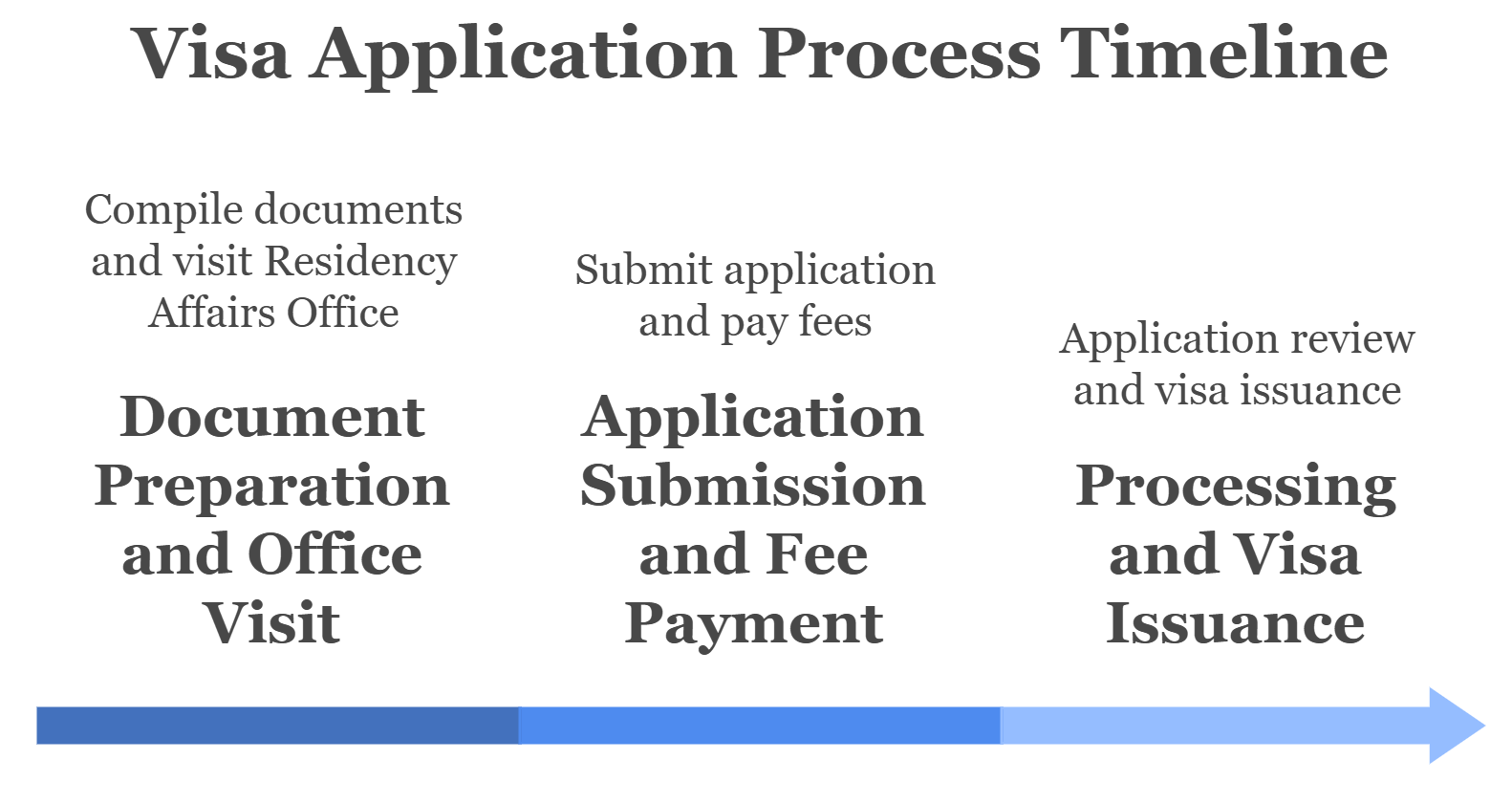Extending a visa in the State of Kuwait requires adherence to official immigration procedures administered by the Ministry of Interior.
Whether you are in the country for tourism, business, employment, or family reasons, maintaining legal residency status is critical to avoid penalties and ensure uninterrupted stay.
This comprehensive guide outlines the updated procedures, eligibility requirements, documentation, and key considerations for individuals seeking to extend their Kuwait visa. To ensure a smooth experience, travelers and residents are advised to apply for Kuwait Visa extensions through the official portal before their current visa expires.

Eligibility for The Kuwait Visa Extension
Not all visa categories are eligible for extension. The possibility of extension depends on the visa type, nationality of the applicant, and the specific circumstances surrounding the stay.
It is advisable to confirm eligibility with the General Department of Residency Affairs before initiating the extension process.
Visa Categories Commonly Eligible for Extension
|
Visa Category |
Description |
|
Tourist Visa (Visa on Arrival / eVisa) |
Valid for 30 days. Typically extendable for an additional 30 days upon application approval. |
|
Visit Visa |
Granted for business or family visits. Initial validity ranges from 30 to 90 days, with potential extensions ranging from 30 to 60 days, subject to approval. |
|
Work Visa (Article 18) |
Renewable based on the employment contract. Renewal must be coordinated by the employer with the relevant labor and residency authorities. |
|
Dependent Visa (Article 22) |
Granted to family members of legal residents. Extensions must be filed by the sponsor. |
|
Student or Official Assignment Visas |
Extensions depend on the ongoing nature of the academic or official program. |
Required Documentation for Visa Extension in Kuwait
To legally extend your stay in Kuwait, a complete and accurate set of supporting documents must be submitted to the relevant immigration authority.
Requirements vary by visa type, but all applicants must comply with the Ministry of Interior’s regulations. Below is an overview of the general and category-specific documentation required.
General Requirements for All Visa Categories
The following documentation is typically required for all visa extension requests, regardless of the visa type:
- Valid Passport: The passport must be valid for no less than six (6) months beyond the proposed extension period.
- Copy of Current Visa and Entry Stamp: A clear copy of the existing Kuwaiti visa and entry stamp affixed to the passport.
- Completed Visa Extension Application Form: This form is available at the General Department of Residency Affairs or via the official Ministry of Interior website.
- Passport-Size Photographs: Two (2) recent photographs taken against a white background, meeting official specifications.
- Proof of Accommodation: A hotel booking, rental contract, or official letter from the host/sponsor confirming housing arrangements.
- Evidence of Financial Means: Recent bank statements or other proof demonstrating the applicant’s ability to support themselves during the extended stay.
- Health or Travel Insurance (where applicable): A valid insurance policy covering medical expenses and emergencies for the duration of the extension.
- Civil ID or Residency Card of the Sponsor: Required for dependent, family, or employment-based visa extensions.

Additional Documentation Based on Visa Type
|
Visa Type |
Documents Needed |
|
Tourist or Visit Visa |
|
|
Work Visa (Article 18 – Private Sector) |
|
|
Dependent Visa (Article 22 – Family Residency) |
|
|
Student or Training Visa |
|
Language and Attestation Requirements
- Documents issued outside Kuwait must be translated into Arabic by a certified translator.
- Certain official documents (e.g., marriage/birth certificates, academic records) must be attested by:
- The Ministry of Foreign Affairs of the issuing country
- The Embassy of the State of Kuwait in that country
- The Kuwaiti Ministry of Foreign Affairs
Application Process for Visa Extension in Kuwait
Visa extensions in Kuwait must be requested before the current visa expires. The process varies depending on the type of visa and is handled either online or in person through the appropriate immigration authorities. Below is a breakdown of each method.
Online Application (for eVisas and certain short-term visas)
Eligible individuals, such as holders of tourist eVisas, may complete the extension process through Kuwait’s official e-government portal.
- Access the Online Portal: Log in Via the official website using your visa or Civil ID details.
- Complete the Application Form: Fill out the visa extension request form with accurate information.
- Upload Supporting Documents: Provide digital copies of required documents, including passport, visa, and photo.
- Pay the Fee and Submit: Finalize the application by paying the required extension fee and submitting it for review.

In-Person Application (for visit, dependent, and residency visas)
For most visa categories, including family, dependent, and employment visas, applicants must apply in person.
- Document Preparation and Office Visit: Compile all required documents relevant to your visa category (visit, dependent, or residency) and proceed to the designated Residency Affairs Office or the one assigned to your sponsor.
- Application Submission and Fee Payment: Submit the completed application form along with supporting documentation to the immigration officer. Pay the applicable visa fees at the authorized payment counter and retain the receipt.
- Processing and Visa Issuance: The application will be reviewed by immigration authorities. Upon approval, the visa will be officially extended or issued as appropriate.

Visa Extension Fees and Processing Timeline
Extending a visa in Kuwait involves both administrative fees and a review process. While the exact amounts and duration can vary based on the visa category and individual circumstances, understanding the general structure of Kuwait e-Visa fees and timelines can help applicants prepare accordingly and avoid unnecessary delays.
Visa Extension Fees
Visa extension fees in Kuwait vary based on the visa type, duration, and applicant’s status. Additional charges may apply for translations, attestations, or late applications. All payments must be made through official channels, and applicants are advised to verify the current fees with the relevant immigration office.
Processing Timeline
Processing times depend on the visa category and completeness of the application. Short-term extensions are usually processed within a few days, while long-term or residency-related visas may take longer. It is advisable to apply well before the visa expires to avoid delays or penalties.
Penalties for Overstay in Kuwait
Overstaying a visa in Kuwait is considered a violation of immigration law and can lead to the following consequences:
- Daily Fines: A fixed fine is charged for each day of overstay until the issue is resolved.
- Deportation: Extended periods of overstay may result in mandatory removal from the country.
- Re-Entry Ban: Offenders may face a temporary or permanent ban from re-entering Kuwait.
- Detention: In serious or repeated cases, individuals may be detained pending further action.
- Delayed Processing: Future visa or residency applications may be delayed or denied due to prior violations.
Role of the Sponsor or Employer in Visa Extensions
Sponsors and employers in Kuwait play a vital role in facilitating visa extensions, particularly for employment and dependent visas. Their key responsibilities include:
- Initiating the Extension Request: Submitting or endorsing the visa extension application through the appropriate immigration channels.
- Providing Required Documentation: Supplying essential documents such as updated employment contracts, company registration papers, or a no-objection certificate.
- Coordinating with Immigration Authorities: Communicating directly with the Ministry of Interior or Residency Affairs on behalf of the applicant, if needed.
- Ensuring Timely Submission: Monitoring visa expiry dates and ensuring that extension requests are filed within the allowed time frame to avoid overstay penalties.
- Covering Applicable Fees: In many cases, sponsors or employers are responsible for paying the official fees related to the extension process.
Exit and Re-entry as an Alternative to Extension
In cases where a visa extension is not possible or not granted, exiting and re-entering Kuwait can serve as an alternative. This option, however, is subject to immigration approval and specific visa conditions.
- Exit Before Visa Expiry:The visa holder must leave Kuwait before the visa expires to avoid overstay fines and penalties.
- Apply for a New Visa Abroad: After exiting, the individual can apply for a new visa, such as a tourist, visit, or work visa, depending on eligibility and purpose of travel.
- Re-entry Is Not Guaranteed: Approval of a new visa and re-entry into Kuwait is at the discretion of the immigration authorities and depends on current visa policies.
- Cooling-Off Period May Apply: In some cases, there may be a required waiting period before reapplying, especially for certain visa types.
- Recommended for Non-Extendable Visa: This option is commonly used for short-term visas that do not allow in-country extensions.
Frequently Asked Questions (FAQs)
This depends on the type of visa and the discretion of the immigration authorities. Some visas allow for multiple extensions, while others are limited to one-time renewals only.
If your visa expires on a public holiday, it's advisable to submit your extension request in advance. Delays due to public closures may not exempt you from penalties.
No. Dependents’ visas are tied to the main sponsor’s visa status. The sponsor must initiate and support the extension process for all dependents.
In some cases, particularly for residency or employment-related extensions, medical testing or proof of health clearance may be required by the authorities.
No. Changing visa types (e.g., from a tourist visa to a work visa) typically requires exiting the country and reapplying under the appropriate category.
Yes, as long as the application was submitted before the visa expiry, you are generally allowed to remain in the country until a decision is made.
If rejected, you must either leave the country before your visa expires or immediately consult immigration authorities or your sponsor for further instructions or appeal options.
Content Disclaimer: Although this information was last updated in June 2025 , we recommend verifying with the appropriate agencies, embassies, and airlines to ensure complete accuracy regarding your travel plans.

To help us improve